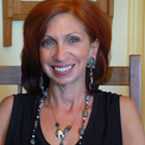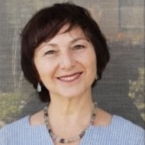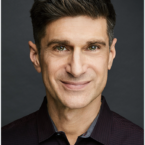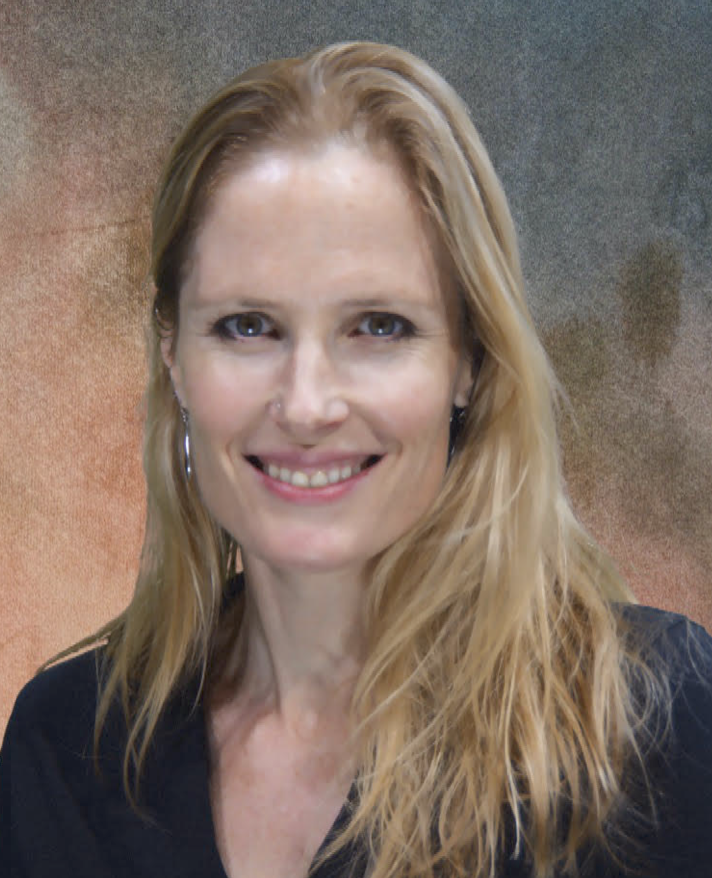Jeanne Newhouse, NCPsyA, Sigal Bahat, MA, Ronald Frederick, PhD, Richard Harrison, R.Psych & Kari Gleiser, PhD
Friday – Monday
June 10, 2022 thru March 13, 2023
11:00 am – 3:30 pm, Eastern Time USA + Canada
This course is sold out with a waitlist. Please email admin@aedpinstitute.org to add your name to the waitlist.
Pre-requisite: Level 1 AEDPers: licensed therapists who have taken AEDP Immersion.
This ES1 counts toward AEDP certification
This AEDP course is open to AEDP Immersion Grads: Licensed Mental Health Providers practicing legally in your state, province, or country, including Counselors, Doctors, Nurses, Psychoanalysts, Psychologists, Psychotherapists, Social Workers, other Behavioral Health Therapists and related professionals. If you have a question about the relevance of this course for you and/or your eligibility for this course please contact admin@aedpinstitute.org with your credentials before registering.
About Essential Skills (ES1): AEDP Essential Skills course will provide practical skills for the application of AEDP as well as a thorough immersion in the theory underlying the practice. Our aim is to teach, in both left-brained and right-brained ways, different types of clinical interventions so that participants will emerge with both an understanding and a felt sense of how to “do” AEDP. Each day’s teaching will include didactic presentations of theory along with video of actual sessions conducted by AEDP Faculty followed by small group experiential exercises.
Routine for each module: AEDP skills are introduced with their theoretical foundations and then with illustrations by way of clinical videotapes; skills are then practiced in group experiential exercises. In online courses, exceptionally effective experiential exercises are held in online “breakout rooms.”
Faculty, Experiential Assistants and Clinical Video: These are the hallmarks of all AEDP trainings. In AEDP, we pride ourselves in how thoroughly and deeply we seek to both undo professional aloneness and engage in rigorous clinical teaching. Our faculty are excellent as academics, clinicians and teachers. Participants deeply appreciate how effectively faculty presenters’ clinical video demonstrates “AEDP in action.” And faculty have skilled accompaniment from a large number of Experiential Assistants – up to and often including one Experiential Assistant for every four participants. Participants rave about the excellent attention and support they receive in this unique learning environment.
To see a listing of AEDP therapists who act as Experiential Assistants, click here.
Course Description
Description: AEDP Essential Skills, aimed at practitioners, will provide practical skills for the application of AEDP. Our aim is to teach, in both left-brained and right-brained ways, skill sets, concrete and specific. Different skill sets will be introduced, explained, illustrated and practiced each week, so that participants will emerge with both an understanding and a felt sense of how to practice AEDP. The basic skill sets necessary to practice AEDP will be introduced each week, with theoretical foundations and with videotapes and group experiential exercises in the afternoon.
In AEDP, we pride ourselves in how thoroughly and deeply we seek to both (i) undo professional aloneness and (ii) engage in rigorous clinical teaching with skilled accompaniment. We are proud to say that our ES courses feature a high number of highly skilled assistants.
What we consider AEDP’s “essential skills” will be didactically demonstrated and experientially explored so that participants develop both a felt sense and a cognitive understanding of them. A key component of the experiential practices is the opportunity to “try on” sets of interventions as a therapist and to receive them as a client. We have found that learning new skills can give rise to experiences of safety, attachment security, transformation, increased therapeutic courage, and related phenomena; precisely the kinds of experiences AEDP facilitates for its clients. Each day course faculty lead small groups in practicing essential AEDP skills. The concentrated time that participants spend together immersed in learning inevitably leads to the development of a culture of trust and generosity that allows for risk-taking and a supportive environment that is uniquely suited
Course Topics
Module 1: Jeanne Newhouse, NCPsyA
HEALING FROM THE GET-GO, UNDOING ALONENESS & THE CLINICAL ROADMAP for AEDP’s TRANSFORMATIONAL JOURNEY
Module 2: Sigal Bahat, MA
ATTACHMENT & RELATIONAL WORK: UNDOING ALONENESS IN CLINICAL ACTION
Module 3: Ronald Frederick, PhD
STATE 1: THE TOP OF THE TRIANGLE of EXPERIENCE WORKING WITH DEFENSE AND ANXIETY
Module 4: Richard Harrison, R.Psych
STATE 2 WORK: THE PROCESSING of CORE AFFECTIVE EXPERIENCE
Module 5: Kari Gleiser, PhD
THE PROCESSING of TRANSFORMATIONAL EXPERIENCE & THE INTEGRATION OF TRANSFORMATION INTO SELF STATE 3 & STATE 4 Work
Course Objectives
- Demonstrate an AEDP therapist stance: welcome, affirm, validate, orient
- Construct safety and undo aloneness
- Apply moment-to-moment tracking to clinical practice
- Construct dyadic safety and connection
- Build and rebuild a secure attachment
- Integrate healing and transformance from the get-go
- Classify different aspects within the Triangle of Experience, including both verbal and somatic processes, to optimize attunement and accelerate the healing process
- Analyze the 4 State Transformational Process: Working with relational trauma in a first session
- Integrate Meta-therapeutic processing and transformational processes
- Relate the experience of emotional experience: processing emotions to completion
- Define attachment styles and utilize different interventions according to attachment style
- Utilize various ways to regulate anxiety, bypass defenses and other inhibitory forces which block progress in therapy
- Describe how to regulate/alleviate anxiety and traces of shame
- Identify and access core affective experiences
- Identify expressions of transformance in clients
- Practice utilizing transformance strivings as a catalyst to maximize patient’s healing
Location, Dates & Times
Please check these dates and times closely for conflicts with Local Holidays, Religious Holidays, etc.
Location: Live Online and highly interactive
AEDP’s Live, Online Learning: Requirements & FAQ’s
Dates:
Friday – Monday
2022 – 2023: June 10 – 13, September 30 – October 3, November 11-14, January 27 – 30, 2023, March 10 – 13, 2023
Times: Daily
11:00 a.m. – 3:30 p.m. Time Eastern time USA + Canada
Please double check the meeting times for your local time zone if not Eastern Time USA + Canada
Registration, Course Fees and Scholarships
This course is sold out with a waitlist. Please email admin@aedpinstitute.org to add your name to the waitlist.
To attend you must be a Level 1 AEDP licensed therapist who has taken AEDP Immersio
- $3,150 USD Member Course Fee (must be logged in to register)
Payment plan: $500 due at registration – Call Karen Newell 866-992-9399
Are you a Member? Log in to get your Member discount
Scholarships are available. To learn more and apply, please go here.
Meet the Presenters

Jeanne Newhouse, NCPsyA
Jeanne Newhouse, NCPsyA, is a licensed psychoanalyst who has been in private practice in New York City since 1988. Jeanne began the practice of helping and healing from a body-based model. She is a certified teacher of the Alexander Technique. She created a movement therapy program for the Smithers Institute, a residential treatment facility for substance abuse in New York City where she worked for six years. During that time she completed a master’s degree in Motor Learning at Teachers College in New York City. As Jeanne worked with patients with chronic, physical pain, she recognized that healing the heart and soul was an integral part of healing the physical body. Hoping to put the two modalities together, she began a four-year training program at the Institute of Contemporary Psychotherapy from which she graduated in 1988. (Read More…)
Sigal Bahat, MA
Sigal Bahat, MA is a faculty member of AEDP™ Institute and the Institute’s ambassador to the AEDP in Israel region. She teaches and supervises AEDP, in Israel, US and internationally, and leads an Israeli AEDP Core Training group. She has a private practice in Israel and also works remotely. Sigal started her career as a Dance Movement Therapist, and then completed training both as an Expressive & Creative psychotherapist, and as a Bio-energetic Analyst. She is certified and has many years of experience as a teacher of somatic-mindfulness approaches.
The Alexander Technique, The Feldenkrais Method and Authentic Movement. Meeting AEDP and Dr. Diana Fosha met a decades-long quest to actively engage the intra-intimate-connections between psyche & soma.
Sigal on AEDP: “At last I met a model that made sense to me in the deepest manner, both theoretically and clinically – (Read More…)

Ronald J. Frederick, PhD
Ronald J. Frederick, PhD, is a licensed clinical psychologist, senior faculty member of the AEDP Institute, co-founder of the Center for Courageous Living in Los Angeles, California and author of the award winning books Living Like You Mean It (Jossey-Bass, 2009) and Loving Like You Mean It (Central Recovery Press, 2019). Since 1994, Dr. Frederick has been training in, practicing, and teaching the AEDP model of psychotherapy, and has received extensive training and supervision from Dr. Fosha. Past experience includes fourteen years as a Clinical Supervisor at Abbott Northwestern Hospital’s Park House Day Treatment Program, a post-doctoral fellowship in Medical Psychology and HIV in the AIDS Center Program at Roosevelt Hospital, NYC, where he later worked as a staff psychologist, and a year-long training rotation in Intensive Short-Term Dynamic Psychotherapy at Beth Israel Medical Center, NYC. Dr. Frederick supervises trainees in the AEDP model, and has co-facilitated, with Dr. Fosha, AEDP numerous Immersion Courses and workshops. (Read More…)
Posts not found

Kari Gleiser, PhD
Kari is a senior faculty member of the AEDP Institute. In her private practice, she specializes in applying AEDP to the treatment of complex trauma and dissociation. For 14 years, Dr. Gleiser was the co-founder/co-director of the Center for Integrative Health in Hanover, NH, a trauma center dedicated to multi-modal healing of mind, body and spirit.
Dr. Gleiser has co-developed an “intra-relational” model of therapy that imports AEDP’s relational and experiential interventions to patients’ internal systems of dissociated self-states. Dr. Gleiser has written clinical papers and book chapters and presents internationally on trauma treatment. She also explores the intersection of psychotherapy and spirituality, as well as the emerging field of psychedelic-assisted psychotherapy. She now lives in Tuscany, Italy.
More Information
Instructional Methodology: AEDP skills are introduced with their theoretical foundations and then with illustrations by way of clinical videotapes; skills are then practiced in group experiential exercises. In online courses, exceptionally effective experiential exercises are held in online “breakout rooms.”
Faculty, Experiential Assistants and Clinical Video: These are the hallmarks of all AEDP trainings. In AEDP, we pride ourselves in how thoroughly and deeply we seek to both undo professional aloneness and engage in rigorous clinical teaching. Our faculty are excellent as academics, clinicians and teachers. Participants deeply appreciate how effectively faculty presenters’ clinical video demonstrates “AEDP in action.” And faculty have skilled accompaniment from a large number of Experiential Assistants – up to and often including one Experiential Assistant for every three participants. Participants rave about the excellent attention and support they receive in this unique learning environment.
To see a listing of AEDP therapists who act as Experiential Assistants, click here.
Disability Access: If you require ADA accommodations please contact our office 30 days Or more before the event. We cannot ensure accommodations without adequate prior notification
Certification: Completion of this course does not guarantee certification. To be eligible for AEDP Certification, clinicians must demonstrate an understanding of the theoretical model and proficiency in applying AEDP interventions to diverse clinical populations, and an overall commitment to the AEDP mission, ethos and values. Certification requirements.
Attendance and Makeup Policy & Refunds:
Questions:
Course and all customer service related questions:
Please contact Customer Service Administrator
Marilia Rodriguez
admin@aedpinstitute.org
813-553-1294
